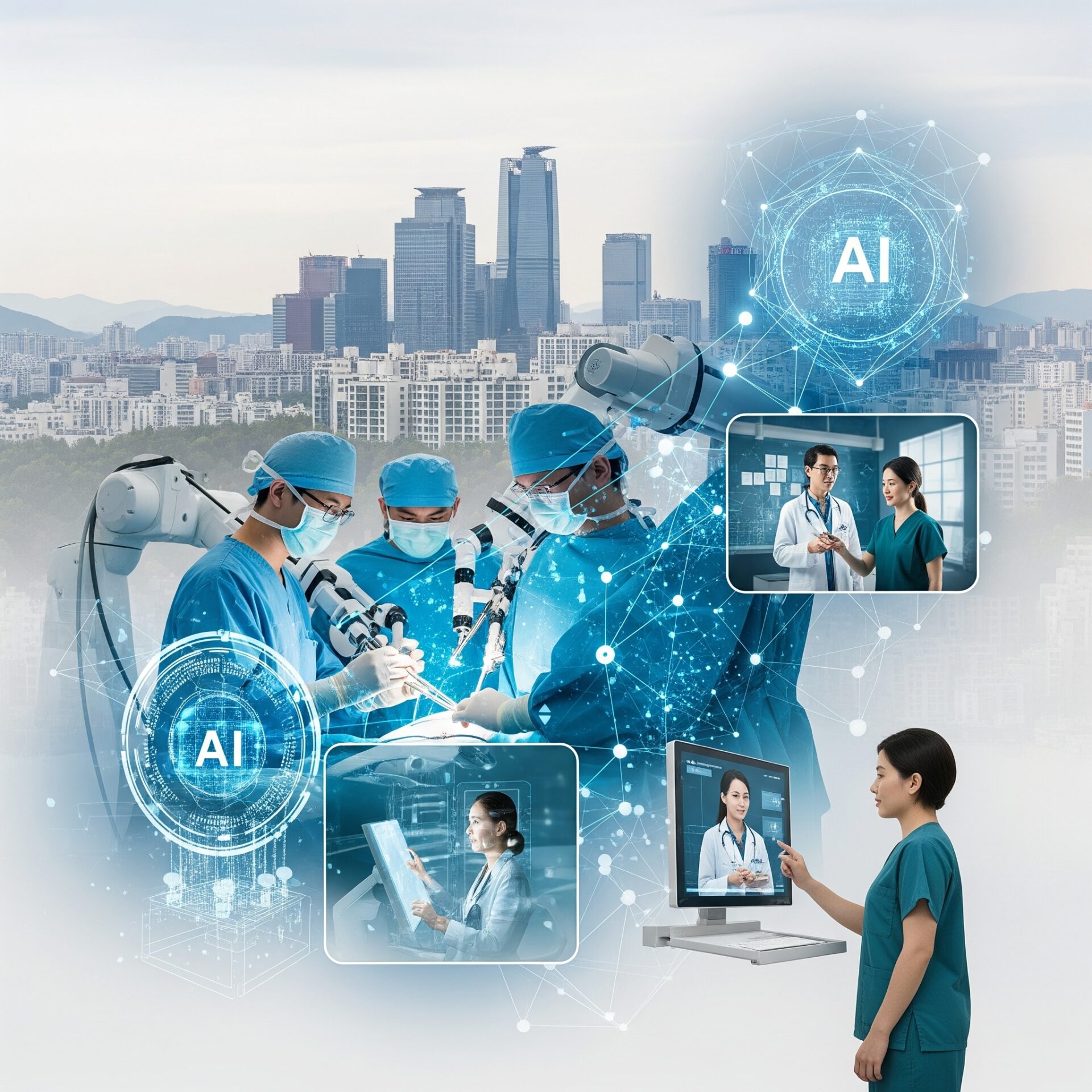48% of Global Healthcare Professionals Now Use AI Tools, Medical Paradigm Shift Expected Within Two Years
Recent global surveys and domestic regulatory developments demonstrate the accelerating digital transformation in healthcare. According to Elsevier’s “Clinician of the Future 2025” report, 48% of healthcare professionals worldwide now use AI tools in their practice, nearly doubling from 26% in 2024. Simultaneously, South Korea has designated 20 digital medical devices as innovative medical devices this year alone, already matching last year’s total and showcasing rapid growth in the digital healthcare ecosystem.
Scientific Innovation and Breakthrough Mechanisms
This landmark study represents a comprehensive empirical investigation involving 2,206 healthcare professionals across 109 countries, providing quantitative evidence of AI penetration in clinical settings. Regional disparities reveal significant adoption patterns: 56% of Asian healthcare professionals and 71% of Chinese medical practitioners utilize AI tools, contrasting with more conservative adoption rates in the United States (36%) and United Kingdom (34%). AI tool applications concentrate on drug interaction screening (30%), medical imaging analysis (21%), and clinical documentation (22%), focusing on clinical decision support and operational efficiency improvements.
South Korea’s Digital Medical Device Act implementation has established an institutional foundation for AI-based medical devices. The legislation addresses the unique characteristics of intangible software with rapid update cycles, providing flexible licensing frameworks that overcome traditional medical device regulatory limitations through innovative regulatory approaches.
Research Methodology and Experimental Design
The Elsevier study employed a multinational cross-sectional survey design to systematically analyze healthcare professionals’ AI tool usage patterns, satisfaction levels, and future projections. Among AI tool users, 97% utilize general-purpose AI tools like ChatGPT or Google Gemini, while 76% employ medical-specific AI tools, demonstrating both the high accessibility of general tools and the ongoing expansion of specialized applications.
Analysis of domestic digital medical device approvals reveals that 86.9% of this year’s 23 innovative medical device licenses were AI-based diagnostic assistance solutions or digital therapeutics, confirming the digital-centric nature of South Korea’s medical device innovation landscape.
Clinical Significance and Therapeutic Efficacy
Healthcare professionals report significant benefits from AI tool utilization: time savings (57%), enhanced work capabilities (53%), and expanded patient treatment options (53%). Japanese medical professionals demonstrated particularly high satisfaction, with 66% acknowledging time-saving benefits above the global average.
Future projections for the next 2-3 years show optimistic expectations: 70% of medical professionals anticipate AI-driven time savings, 58% expect faster diagnostics, and 54% predict more accurate diagnoses. Notably, 56% foresee AI analyzing all medical imaging to automatically detect abnormalities, indicating strong expectations for diagnostic accuracy innovation.
Commercial Viability and Market Potential
Six months after the Digital Medical Device Act’s implementation, innovative medical devices are rapidly entering the market, with the world’s first digital medical device development law serving as a pioneering model for global regulations. Industry representatives state, “Building on R&D achievements accumulated since last year, this legislation will significantly benefit companies entering full commercialization phases.”
However, 47% of medical professionals acknowledge treatment capability decline due to fatigue, and 31% express intentions to leave their positions within several years, highlighting persistent healthcare workforce shortages that underscore the growing necessity for AI tools.
Future Research and Development Directions
The government plans to release additional guidelines for generative AI, clinical GMP, labeling systems, and post-market surveillance in the second half of the year. Key challenges include detailed guideline supplementation, examination workforce expansion, and reimbursement rate optimization. Industry experts note, “Given the rapid increase in medical device license applications incorporating AI and other new technologies, reimbursement rates that are significantly lower than developed countries need to be brought to realistic levels.”
Key Achievements: Global healthcare professional AI adoption rate reaches 48%, with South Korea’s digital medical device approval surge accelerating innovative ecosystem development. Fundamental medical paradigm transformation anticipated within two years.
Research Limitations: The study’s cross-sectional design limits causal inference regarding AI impact on clinical outcomes. Long-term longitudinal studies are needed to establish definitive efficacy and safety profiles for AI-integrated medical practice.

